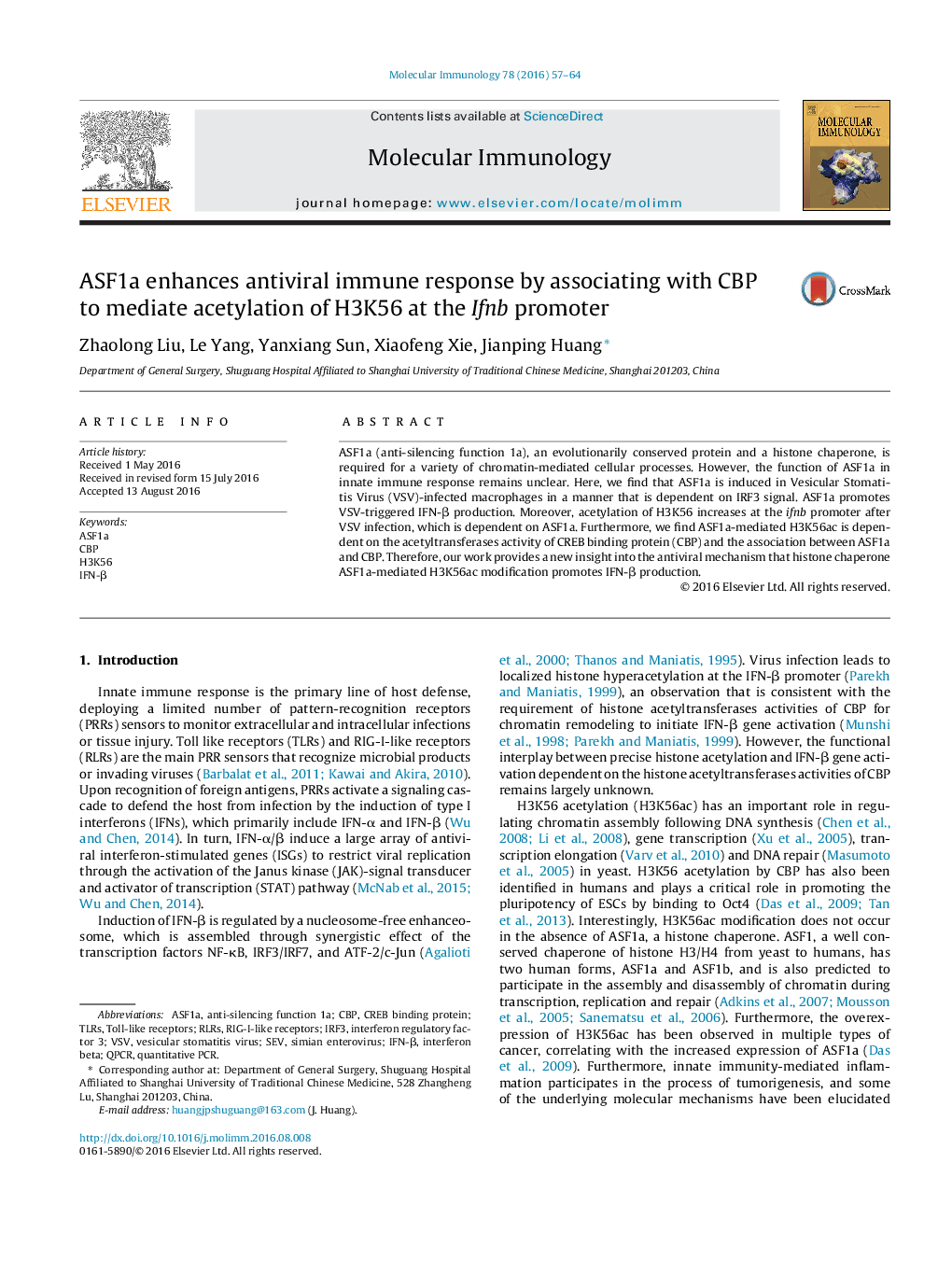| Article ID | Journal | Published Year | Pages | File Type |
|---|---|---|---|---|
| 2830508 | Molecular Immunology | 2016 | 8 Pages |
Abstract
ASF1a (anti-silencing function 1a), an evolutionarily conserved protein and a histone chaperone, is required for a variety of chromatin-mediated cellular processes. However, the function of ASF1a in innate immune response remains unclear. Here, we find that ASF1a is induced in Vesicular Stomatitis Virus (VSV)-infected macrophages in a manner that is dependent on IRF3 signal. ASF1a promotes VSV-triggered IFN-β production. Moreover, acetylation of H3K56 increases at the ifnb promoter after VSV infection, which is dependent on ASF1a. Furthermore, we find ASF1a-mediated H3K56ac is dependent on the acetyltransferases activity of CREB binding protein (CBP) and the association between ASF1a and CBP. Therefore, our work provides a new insight into the antiviral mechanism that histone chaperone ASF1a-mediated H3K56ac modification promotes IFN-β production.
Keywords
Related Topics
Life Sciences
Biochemistry, Genetics and Molecular Biology
Molecular Biology
Authors
Zhaolong Liu, Le Yang, Yanxiang Sun, Xiaofeng Xie, Jianping Huang,
